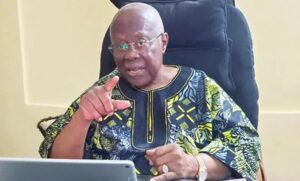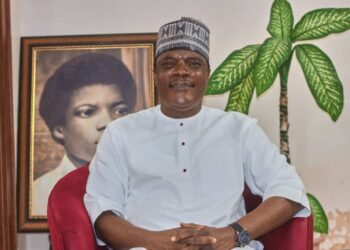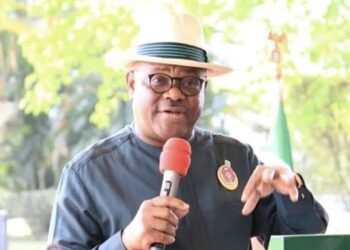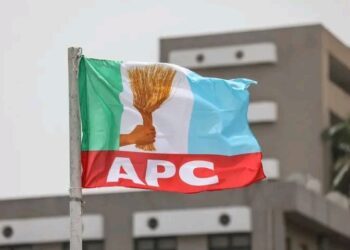Former Deputy National Chairman of the Peoples Democratic Party (PDP), Chief Bode George, says former Vice President Atiku Abubakar, must wait till 2031 if he wants to contest for president again.
The News Agency of Nigeria (NAN) recalls that Abubakar, the PDP Presidential Candidate in the 2023 general elections, lost to the incumbent President Bola Tinubu.
George, in a statement on Wednesday, said that a southerner must occupy the office of the President and Commander in Chief from 2023 to 2031 “because that is the reality of our country, PDP constitution and our polity”.
“Even in 2027, Atiku will be 81 years and this is the time for him to embrace the President Joe Biden concept of allowing the younger generation to run for the highest office in the land.
“I have nothing personal against Alhaji Abubakar. He is my friend but the truth must be told. By 2027, by God’s Grace, I will also be in my 80s.
“So, what am I looking for in public office as an octogenarian? The same principle should apply to Alhaji Abubakar.
“We all saw what American President, Joe Biden, did recently when he stepped down for Kamala Harris to contest the November presidential election.
“That is the hallmark of a statesman. Alhaji Abubakar should do same so that in 2027, PDP will field a southerner as presidential candidate,” George, a former military governor of Ondo State ,said.
According to him, the immediate past President Muhammadu Buhari, a northerner from Katsina State ,just left office after ruling for eight years.
He said that power at the federal level could not go to the North in 2027 because “that is the reality of our country and our party’s constitution”.
George said that Section 7, Sub-section 3 (C) of the PDP Constitution stated that zoning and rotation must be maintained for justice, fairness and equity.
He added: “In our party, this is the right and logical thing to do in the present political circumstances.
“But if Alhaji Abubakar is desperate to contest again, I will advise him as a friend, a party man and brother to wait till 2031. By then, he will be 85 years.
“As loyal party members, we must continue to respect PDP Constitution. Fair is fair. I joined the PDP in 1998 and I have remained in this party since.”
The PDP chieftain said that he was elected National Vice -Chairman (South-West) and later,Deputy- National Chairman and now, a member of the Board of Trustees (BoT) and one of the respected elders and credible voices of our party.
He said: “I have not defected to any other party. While I was in Wadata Plaza, Alhaji Abubakar was in the Villa as Vice President. So, we know ourselves and the two of us know the principles guiding this party.
“We should not do anything that will destroy our party and the country. In 2027, the concept of Turn-by-Turn Nigeria Limited must be strictly followed by our party.
“PDP must look for a southerner to wrest power from the APC because that party of strange bed fellows wants to destroy this country, economically and politically.
“So, Nigerians are waiting for us to rescue them in 2027 but a southerner must lead the battle,” he said.
George described as laughable, a report by Abubakar’s media adviser, Mr Paul Ibe, calling him (George) a tribal bigot, over his position on power rotation.
“I read a report by one of Alhaji Abubakar’s media aides accusing me of tribalism, I just laughed. My best friend today is a Fulani man, Admiral Murtala Nyako.
“I was the Director-General of the Umaru Musa Yar’Adua Presidential Campaign Organisation for the 2007 elections. The late president trusted me. So, I cannot be accused of being tribalistic.
“I also served the military well. My records are there for all to see. But, you know in politics, people can say anything to tarnish your image. Despite that, the truth must be told. What you will not accept, don’t give to others.
“I can boldly say that I am a detribalised Nigerian and a committed member of the PDP. I don’t harbour any disdain or hate for Alhaji Abubakar or any other PDP member,” he said.
George urged every member of the party to” embrace and respect the entrenched principles of zoning and rotation, bestowed on the party by our founding fathers since inception in 1998, “no matter whose ox is gored.
“The principles explicitly stipulate that, at the end of every eight years, all elective and party offices should change from the northern divide to the southern divide and vice versa.
“That is the position which I will continue to champion till thy kingdom come!,” he said.











